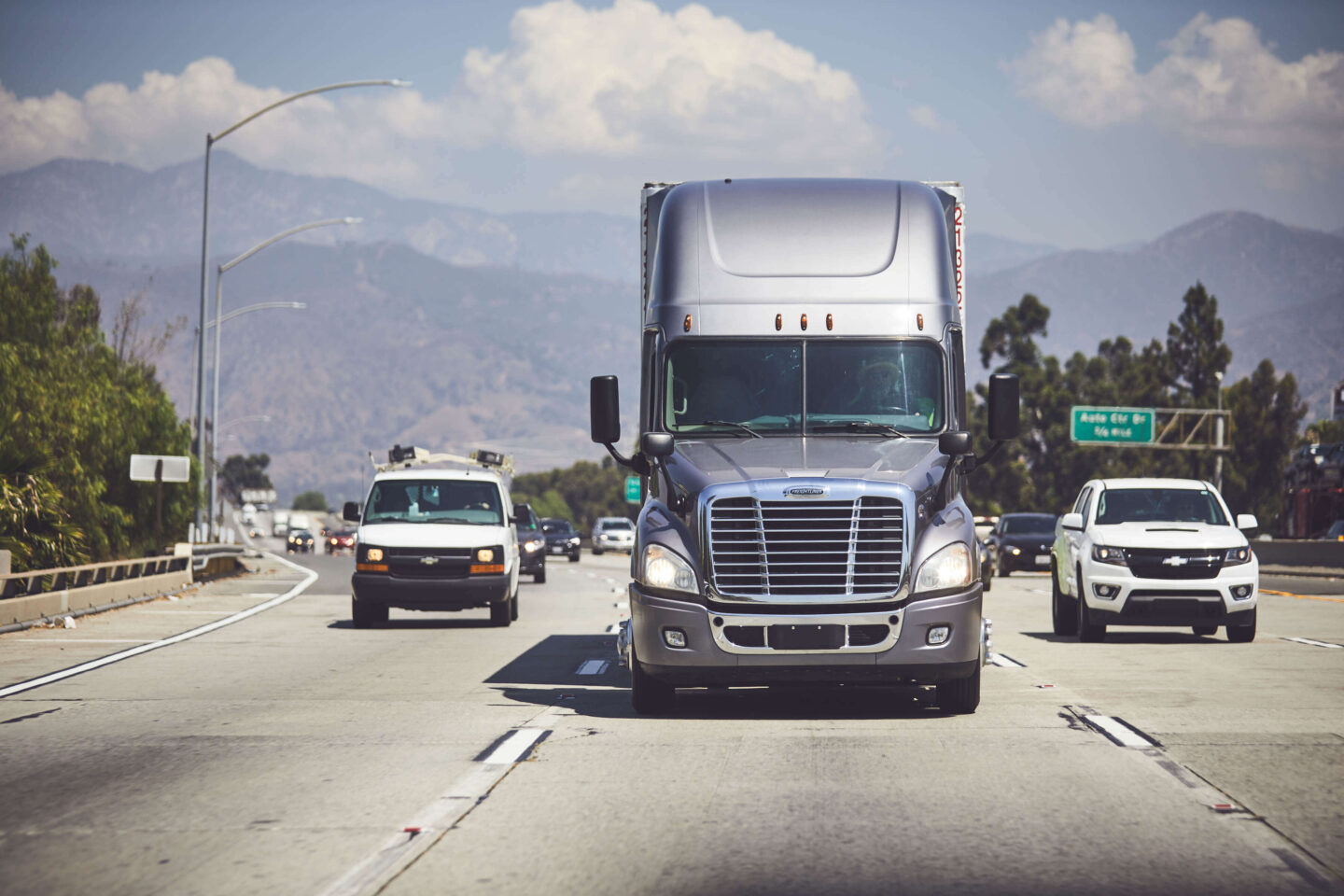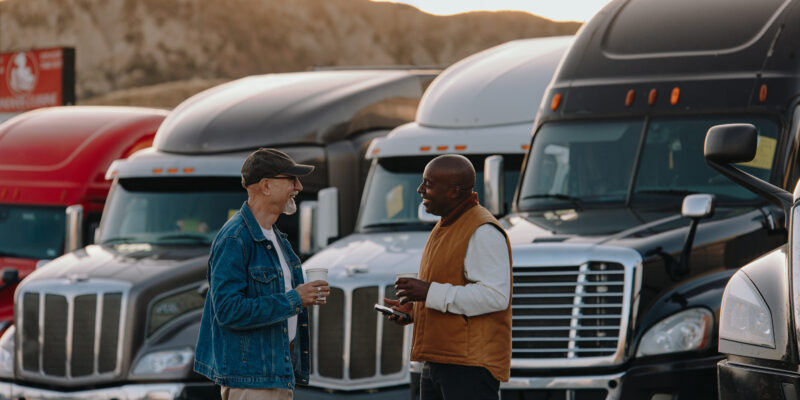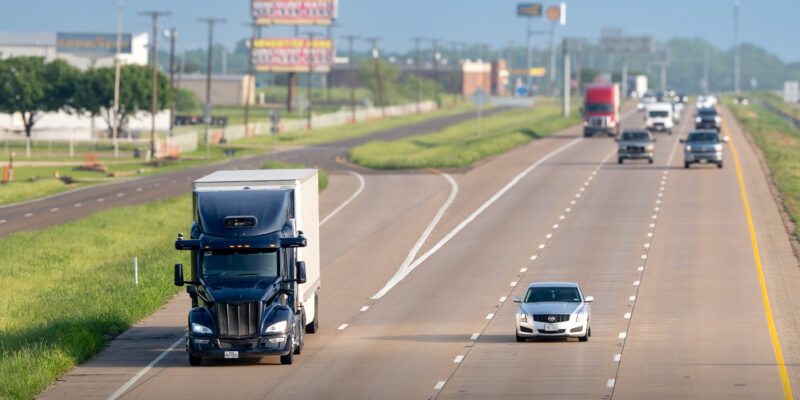2022 year in review: 7 key moments for Uber Freight and logistics

The freight industry experienced a whirlwind of challenges and opportunities over the past 12 months. After two years of pandemic-fueled chaos, shippers and carriers finally saw relief with freight rates decreasing and capacity expanding. At the same time, the market experienced an ongoing truck driver shortage, fluctuating levels of supply and demand, and disruption fueled by natural disasters and inflation.
If we learned anything from 2022, it’s that sticking with traditional logistics strategies and platforms won’t help companies stay proactive in adapting to the new normal of volatility. Shippers and carriers will need to have access to modern logistics platforms and partners that equip them with the tools to navigate and stay ahead of a rapidly changing world.
Here’s a look at seven key moments that impacted Uber Freight and logistics in 2022, and what they mean for shippers and carriers heading into 2023.
Uber Freight and Transplace form a new logistics platform
Uber Freight and Transplace joined forces to offer a logistics solution and partner designed to unlock supply chain reliability, resiliency and optimization for shippers of all sizes. The platform offers services across a digital brokerage, transportation management systems, and fully managed transportation and logistics solutions. Moving forward, the company is committed to product transparency, from real-time pricing to facility insights; visibility into performance for shippers and carriers; moving goods sustainably; and introducing customers to new technologies that could make a positive impact, such as autonomous trucks.
Deliver 2022 reimagines the future of logistics
Uber Freight’s annual Deliver conference in September drew more than 500 people to San Antonio, Texas. The event featured conversations highlighting the state of the freight market and action steps to navigate future market disruption and build more dynamic supply chain networks overall. Notable freight and logistics pros provided attendees with insights around key themes including building sustainable supply chains, transforming transportation with autonomous trucks, and using data to power shipping decisions. The event also gave back to the community, including the San Antonio Food Bank, and raised $75,000 for Feeding America.
Autonomous trucking is the future of freight
Driver shortages, on-road safety and supply chain constraints are persistent industry challenges—all of which can be alleviated by integrating autonomous trucks in the market. Effectively using this technology will require a hybrid network, where autonomous and human-driven trucks operate side by side to counter supply and demand imbalances and looming retirements —all while increasing efficiency, capacity, and sustainability.
Uber Freight launched a long-term strategic partnership with Waymo to deploy billions of autonomous miles on our network as well as integrate between both platforms to create a comprehensive digital transportation solution. Similarly, Uber Freight expanded its existing pilot program with Aurora with the addition of numerous additional customers and expansion to the Dallas/Fort Worth to El Paso lane, running autonomous trucks with safety drivers in the Southwest, built on Uber Freight’s trailer pool program, Powerloop. Lastly, in December, Uber Freight announced a partnership with one of the leading autonomous Transportation-as-a-Service providers, Volvo Autonomous Solutions, to partner on optimizing our customers’ networks with the option to tap into autonomous capacity directly.
Using logistics to support communities in need
From economic hardships to natural disasters, this year had its fair share of events that impacted local communities. Uber Freight demonstrated how the freight industry as a whole is committed to using its expertise and resources to support those in need.
After extreme winter storms caused massive power outages in Texas in February, Uber Freight acted quickly to move loads of donated supplies to affected communities. In total, we moved more than 100,000 gallons of water and other supplies donated by organizations including Children’s Hunger Fund (CHF). Additionally, following Hurricane Ian’s damage across Florida in September, Uber Freight stepped in to ship loads of emergency relief supplies across the state.
Uber Freight also partnered with Feeding America to support its Move What Matters campaign and committed more than $700,000 to cover moving donated goods (such as food, water, and medical supplies) across the country. This holiday season, Uber Freight also partnered with Chicago-based children’s charity Santa for a Day to deliver presents to children ahead of the holidays. Uber Freight arranged for two truckloads to be delivered to hubs in Philadelphia and Milwaukee for the organization.
Exploring dynamic, modern approaches to procurement
Solely relying on the traditional procurement process (using RFPs and signing annual contracts for rates) isn’t enough to nimbly adapt to market volatility. Efficiently sourcing and hauling freight will require an agile procurement strategy: Knowing when and how to leverage any type of procurement—from real-time and spot to contract and dedicated—depending on business needs and the state of the market. Automated, real-time procurement solutions are key to an agile strategy, giving shippers the flexibility, scale, and visibility that the process has historically lacked. Digital marketplaces that offer immediate access to truck driver capacity and cost transparency are also vital to helping shippers evolve their procurement strategies.
Using LTL to empower small and mid-sized shippers
As small and mid-sized businesses looked for more flexible, cost-effective ways to move freight during market disruption in 2022, less-than-truckload (LTL) came to the forefront as a vital solution. Fragmentation of LTL freight providers, carriers and procurement marketplaces have all been barriers to adoption. But these challenges can be alleviated by using a platform where smaller shippers can compare quotes and choose LTL solutions for specific use cases like busy holiday seasons and delivering goods to remote locations. For example, Nova Ukraine—a nonprofit providing humanitarian aid to the people of Ukraine—used Uber Freight’s LTL solutions for relief efforts during the ongoing Russia-Ukraine war. LTL helped the organization deliver more than 16,000 pounds in medical and personal protection supplies to communities in Ukraine and Poland.
Achieving industry excellence
As Uber Freight helped shippers adapt their logistics strategies to volatility this year, we received multiple industry and customer awards including FreightWaves’ annual FreightTech Top 25, which honors companies leading innovation and disruption in the freight industry. We were also ranked 10th among Transport Topics’ Top 100 Logistics Companies. Additionally, we were named one of Armstrong & Associates + Logistics Management Top 50 3PL Providers, which recognizes logistics providers and their efforts in managing customers’ supply chains.



